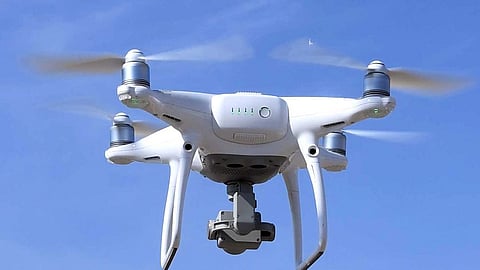RTA Planning Rules for Passenger Transport Autonomous Air Vehicles
Dubai’s Roads and Transport Authority (RTA) has recently held the first legal forum to review the rules and regulations governing operations for passenger transport autonomous air vehicles.
This preliminary step aims to chart out suitable structures and develop rules and regulations required for the operation of this ultra-advanced mode of future transportation.
Such efforts form an integral part of plans and strategies aimed to broaden and enhance the transportation sector in Dubai and raise its global significance.
Shehab Bu Shehab, Director of the Legal Department, Strategy and Corporate Governance Sector, RTA said: “Legislations regulating the operation of such drones are critical to maintaining the development process and envisioning the future.
"Enacting such laws aims to build an integrated legislative structure capable of supporting Dubai’s sustainable development, technology advancement, and the use of artificial intelligence in the infrastructure.
"Dubai has embarked on a new phase in the journey towards the smart city marked using artificial intelligence onboard drones.
Sheikh Hamdan Launches Program to Enable Drone Transportation in Dubai
“Enacting suitable legislation for drone’s operation focuses on several key aspects. The process is extremely important as drones constitute an extremely high-risk factor to the air traffic of conventional planes if left without legislation and legal controls."
The forum discussed three main topics related to the registration procedures, operation controls and liability for damage caused by drones. In this regard, participants cited the American model and the French model.
Both models provide for mandatory registration of autonomous aircrafts prior to operation.
The forum also discussed the operational obligations on the operator (pilot), controller and crew members of the autonomous aircraft.
The parties must, as the case may be, adhere to the safety & security requirements as well as the aircraft operating controls and systems among other aspects.
Other topics discussed included adherence to safety rules, safety distance and property protection.
According to the Article (15) of Law No. (4) of 2020 the use of drones is prohibited in certain places such as airports, military zones and residential areas.
Among the conditions attached to the use of such aircrafts, a supervisor must be tasked to oversee matters related to privacy (photography), protection of personal data and the risks of flying over residential communities.
The law made it mandatory to provide an electronic map that specifies the prohibited and permitted areas for flying over.
Read More: Mobilicom Launches AI-based Cybersecurity Suite for Drones, Robotics


